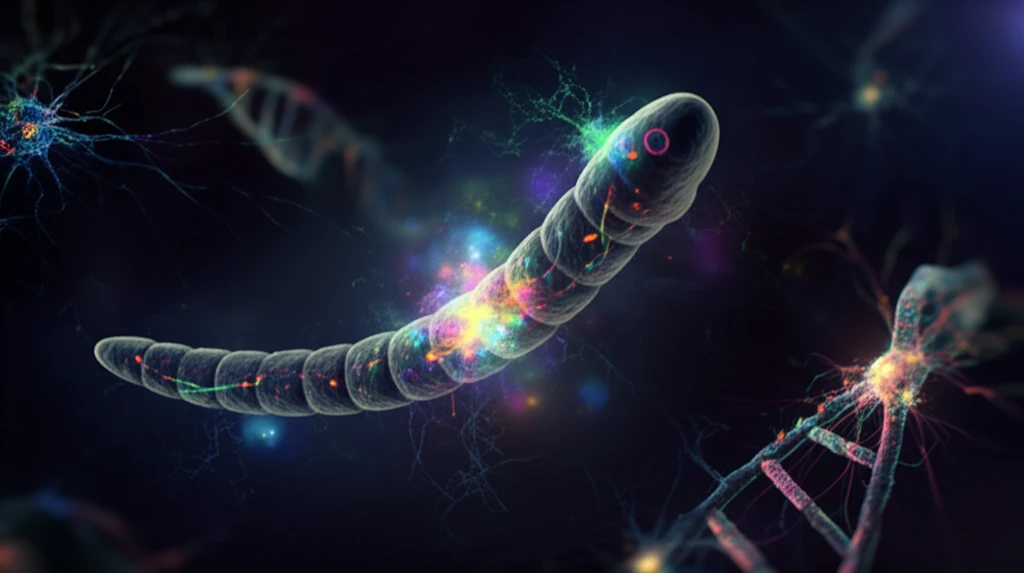
Unlock Your Brain's Potential: How Common Drugs Impact Your Mind and Behavior
"Exploring the surprising ways risperidone and aripiprazole—drugs often used for serious mental health conditions—affect our fundamental behaviors, offering new clues about brain function."
Our brains are complex networks, and even subtle changes in brain chemistry can significantly impact our behavior. Scientists are constantly working to understand these intricate relationships, often using model organisms like Caenorhabditis elegans (C. elegans) to explore the fundamental mechanisms of how drugs affect the nervous system.
C. elegans, a tiny nematode worm, offers a unique window into understanding how drugs influence behavior because of its simple yet well-defined nervous system. Despite its simplicity, the worm shares many genetic similarities with humans, making it a valuable tool for studying basic biological processes.
A recent study published in the Journal of Experimental Neuroscience investigates how two common antipsychotic drugs, risperidone and aripiprazole, interact with dopamine and serotonin pathways in C. elegans, affecting fundamental behaviors like touch response and feeding. The findings reveal unexpected insights into how these drugs might be influencing the nervous system.
Decoding the Impact: Risperidone and Aripiprazole on Basic Behaviors

The study focuses on how risperidone and aripiprazole, both atypical antipsychotics commonly prescribed for conditions like schizophrenia and bipolar disorder, affect specific behaviors in C. elegans. Risperidone primarily blocks dopamine D2 and serotonin 5-HT2A receptors, while aripiprazole acts as a partial agonist of dopamine D2 receptors and a partial agonist/antagonist of serotonin 5-HT1A and 5-HT2A receptors.
- Risperidone and aripiprazole significantly alter touch response and feeding rates in C. elegans.
- The drugs interact with specific dopamine (DOP-1, DOP-2, DOP-3) and serotonin (SER-1) receptors.
- Effects persisted across generations, suggesting epigenetic modifications.
- Sodium butyrate, a histone deacetylase inhibitor, eliminated the transgenerational effects.
Implications and Future Directions
This research opens new avenues for understanding how antipsychotic medications impact the brain and behavior. While conducted on worms, the findings highlight the potential for epigenetic changes and the importance of considering long-term effects. Future studies could explore these mechanisms in more complex organisms, potentially leading to more targeted and effective treatments for mental health conditions.
